
Moremi Game Reserve: Botswana's Wildlife Jewel
Moremi Game Reserve in Botswana is a paradise for wildlife lovers. It is situated in the eastern part of the Okavango Delta, an area known for its rich biodiversity and stunning landscapes. Moremi is unique because it combines permanent water with drier areas, creating a habitat that supports a wide variety of animals and plants. The reserve is home to a staggering array of wildlife, including elephants, lions, leopards, buffalo, and the rare African wild dog. Bird watchers will also be delighted, as Moremi hosts over 400 species of birds. The lush landscapes are a mix of waterways, lagoons, and forests, making it one of the most scenic game reserves in Africa. Visitors can explore Moremi through guided game drives, boat trips, and walking safaris. Each offers a different perspective on the reserve's diverse ecosystems. The best time to visit is during the dry season from July to October, when animals gather around water sources, making wildlife sightings more frequent and spectacular.
Local tips in Moremi Game Reserve
- Visit during the dry season (July to October) for the best wildlife sightings.
- Book guided game drives for expert insights into the reserve's flora and fauna.
- Don't forget your binoculars for bird watching; Moremi is home to over 400 bird species.
- Consider a boat trip to explore the waterways and see animals from a different perspective.
- Pack light, breathable clothing and plenty of sunscreen for daytime excursions.
Moremi Game Reserve: Botswana's Wildlife Jewel
Moremi Game Reserve in Botswana is a paradise for wildlife lovers. It is situated in the eastern part of the Okavango Delta, an area known for its rich biodiversity and stunning landscapes. Moremi is unique because it combines permanent water with drier areas, creating a habitat that supports a wide variety of animals and plants. The reserve is home to a staggering array of wildlife, including elephants, lions, leopards, buffalo, and the rare African wild dog. Bird watchers will also be delighted, as Moremi hosts over 400 species of birds. The lush landscapes are a mix of waterways, lagoons, and forests, making it one of the most scenic game reserves in Africa. Visitors can explore Moremi through guided game drives, boat trips, and walking safaris. Each offers a different perspective on the reserve's diverse ecosystems. The best time to visit is during the dry season from July to October, when animals gather around water sources, making wildlife sightings more frequent and spectacular.
When is the best time to go to Moremi Game Reserve?
Iconic landmarks you can’t miss
Mokolodi Nature Reserve
Experience Botswana's wildlife and conservation efforts at Mokolodi Nature Reserve, a short drive from Gaborone.
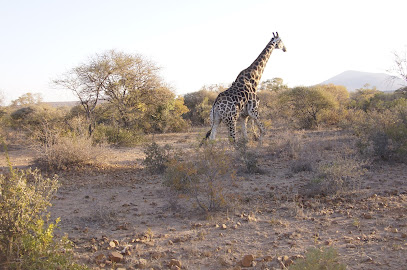
Cresta Mowana Safari Resort and Spa
Experience luxury in the heart of the African wilderness at Cresta Mowana Safari Resort & Spa, offering unforgettable Chobe River adventures.

Khama Rhino Sanctuary
Discover Botswana's wildlife at Khama Rhino Sanctuary: Protecting rhinos, empowering communities, and offering unforgettable safari experiences.
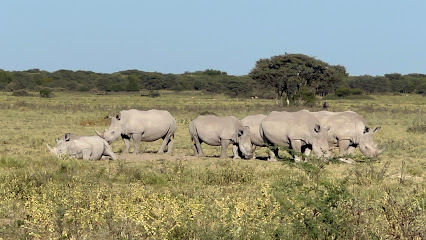
Tsholofelo Park
Escape to Gaborone's tranquil heart: Tsholofelo Park, where nature, culture, and community converge for a refreshing experience.
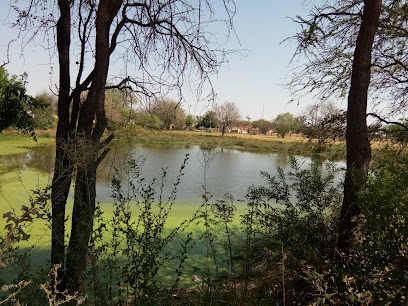
Chobe National Park
Discover Botswana's wildlife paradise: Chobe National Park, home to massive elephant herds and diverse ecosystems, offering unforgettable safari adventures.
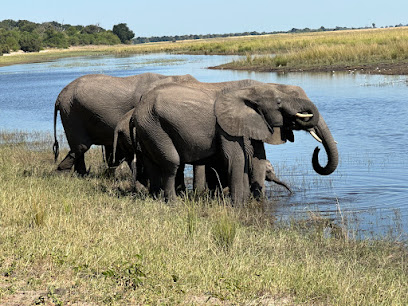
Goo-Moremi Gorge Resort
Discover Botswana's hidden gem: Goo-Moremi Gorge Resort, where nature, culture, and tranquility meet in the heart of the Tswapong Hills.

Makgadikgadi Pans National Park
Discover Botswana's Makgadikgadi Pans National Park: vast salt flats, unique wildlife, and stunning desert landscapes. A photographer's dream!
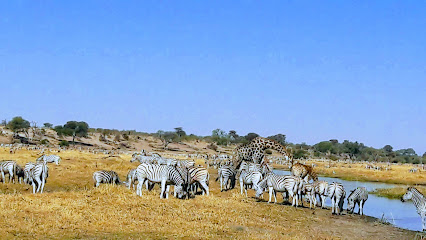
Central Kalahari Game Reserve
Explore Botswana's vast Central Kalahari Game Reserve: a remote wilderness offering unparalleled wildlife encounters and San culture experiences.
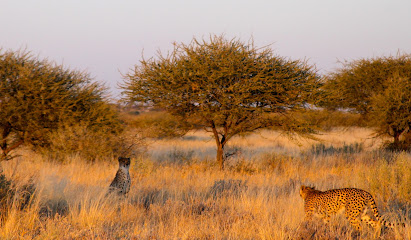
Helicopter Horizons
Unforgettable aerial tours over the Okavango Delta. Experience Botswana's stunning landscapes and diverse wildlife from a unique perspective.
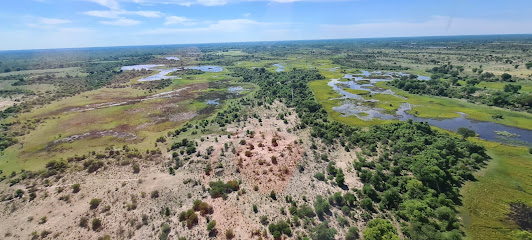
Audi Camp Safaris
Experience Botswana's natural beauty with comfortable lodging and unforgettable safari adventures at Audi Camp Safaris in Lekawen Drift.

Nxai Pan National Park
Explore Botswana's unique Nxai Pan National Park: Witness seasonal migrations, iconic baobabs, and tranquil wilderness in the heart of the Kalahari.
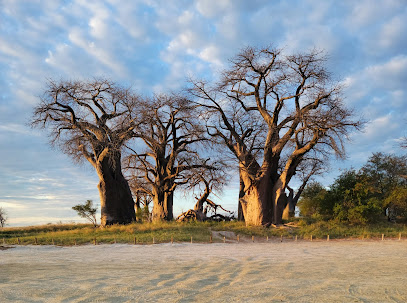
Khwai River Lodge, Botswana
Experience luxurious safari living on the Khwai River, with exceptional wildlife viewing and immersive activities in Botswana's untamed wilderness.

Baines Baobabs
Discover the breathtaking beauty of Baines Baobabs, Botswana's iconic baobab trees and a must-visit natural wonder for every traveler.
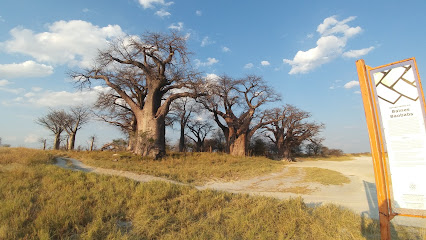
Third Bridge Camp
Experience the untamed beauty of Botswana at Third Bridge Camp, where wildlife roams free in the heart of the Okavango Delta's Moremi Game Reserve.

Camp Moremi
Experience a luxurious Botswana safari at Camp Moremi, nestled in the heart of the Okavango Delta's Moremi Game Reserve. Unforgettable wildlife encounters await.

Unmissable attractions to see
Mokolodi Nature Reserve
Experience Botswana's wildlife and conservation efforts just a short drive from Gaborone at Mokolodi Nature Reserve.
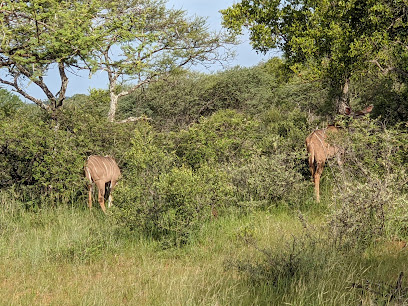
Kgalagadi Transfrontier Park
Explore the untamed beauty of the Kalahari: vast landscapes, diverse wildlife, and unforgettable safari experiences in Botswana and South Africa.
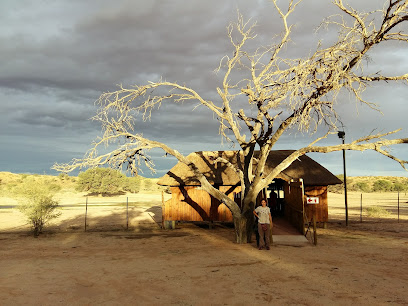
Khama Rhino Sanctuary
Discover Botswana's Khama Rhino Sanctuary: a community-driven haven for black and white rhinos, diverse wildlife, and unforgettable safari experiences.
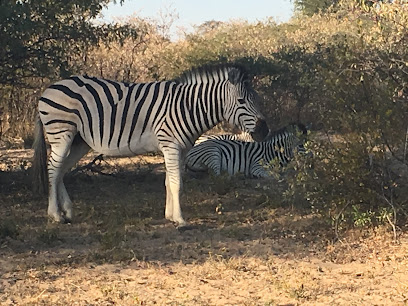
Tsholofelo Park
Escape to Gaborone's tranquil Tsholofelo Park: a green oasis for relaxation, recreation, and community events in the heart of the city.
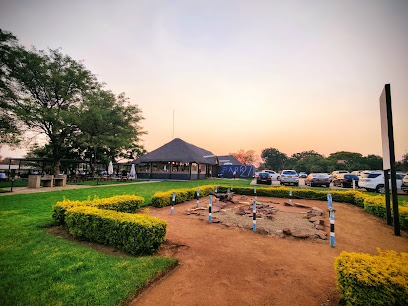
Chobe National Park
Discover Botswana's first national park, home to Africa's largest elephant herds and diverse wildlife, offering unforgettable safari adventures.
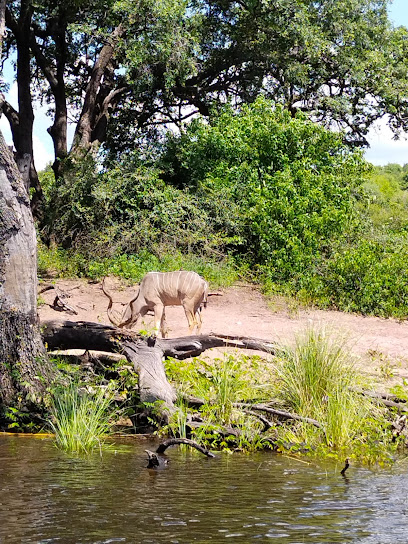
Helicopter Horizons
Discover Botswana's breathtaking beauty from above with scenic helicopter flights over the Okavango Delta and beyond.
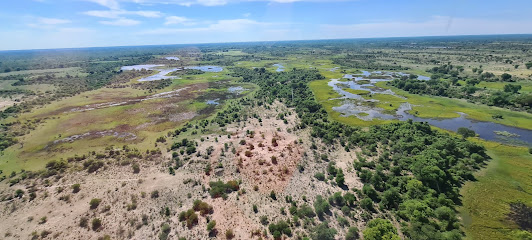
Kalahari Tours
Experience unforgettable Chobe National Park safaris with expert guides, customized tours, and affordable prices in Kasane, Botswana.
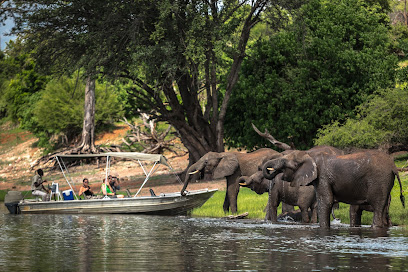
Sanctuary Chief's Camp
Experience unparalleled luxury and exceptional wildlife encounters in the heart of Botswana's Okavango Delta at Sanctuary Chief's Camp.

Mashatu Game Reserve
Explore Botswana's Mashatu Game Reserve: a land of giants, diverse landscapes, and unparalleled wildlife encounters.
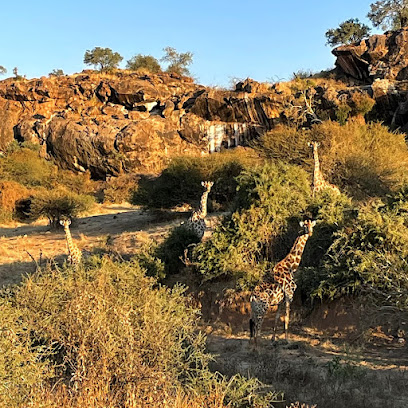
Gaborone Game Reserve
Discover Botswana's wildlife in the heart of the capital at Gaborone Game Reserve, a convenient and enriching nature escape for all.
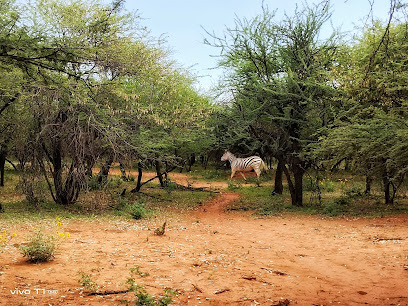
Afro-Trek
Experience Botswana's wild beauty and cultural richness with guided tours, sustainable practices, and unforgettable adventures at Afro-Trek.
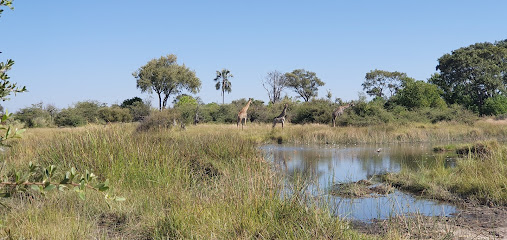
Makadikadi Basin
Explore the Makgadikgadi Pans: Botswana's ancient salt flats, a landscape of stark beauty, unique wildlife, and profound historical significance.
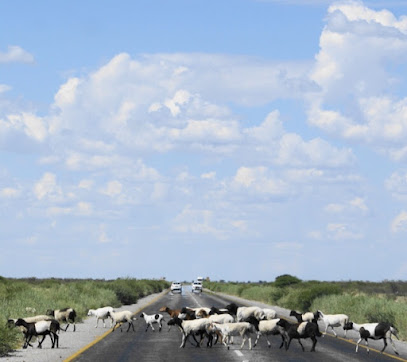
Sango Safari Camp
Experience an authentic Botswana safari at Sango Safari Camp, bordering Moremi Game Reserve and the wildlife-rich Khwai River.
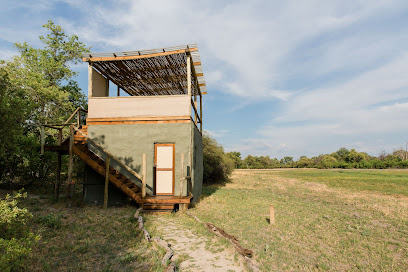
Semowi Nature Camp
Discover an eco-friendly Okavango Delta retreat at Semowi Nature Camp: riverside tents, wildlife views, and authentic Botswana safaris.
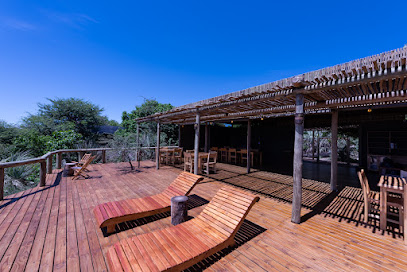
Qorokwe Camp
Experience luxury and adventure in Botswana's Okavango Delta at Qorokwe Camp, with exceptional wildlife and stunning landscapes.
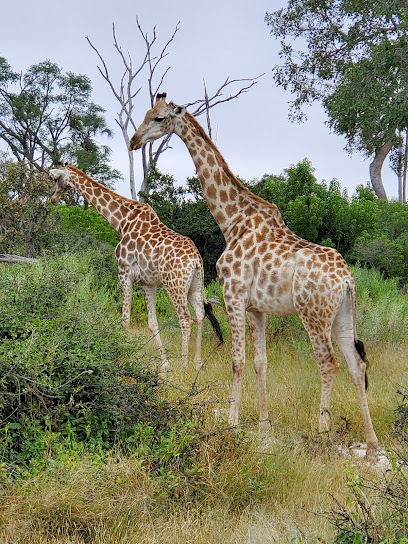
Essential places to dine
Cresta Mowana Safari Resort and Spa
Discover luxury amidst nature at Cresta Mowana Safari Resort and Spa along the Chobe River in Botswana.

Chobe Marina Lodge
Experience unparalleled luxury at Chobe Marina Lodge while exploring Botswana's breathtaking landscapes and abundant wildlife along the Chobe River.

Moremi Game Reserve
Explore Moremi Game Reserve: A breathtaking sanctuary of wildlife nestled in Botswana's Okavango Delta.
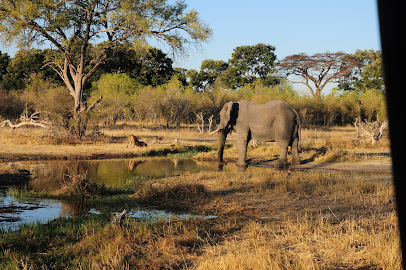
Cresta Maun Hotel
Discover unparalleled comfort at Cresta Maun Hotel while exploring Botswana's breathtaking wilderness and vibrant culture.

Marc's Eatery
Experience exquisite flavors at Marc's Eatery - Maun’s premier destination for breakfast, brunch, and lunch lovers seeking quality dining.
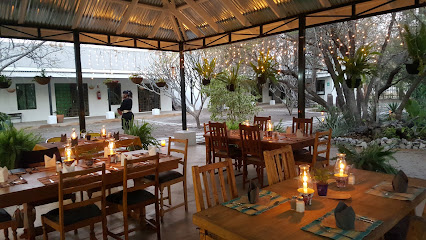
Khwai River Lodge, Botswana
Experience luxury and adventure at Khwai River Lodge in Botswana's breathtaking Okavango Delta.

Third Bridge Camp
Discover the wild beauty of Botswana at Third Bridge Camp in Moremi Game Reserve - an unforgettable camping experience amidst nature.

Camp Moremi
Discover adventure at Camp Moremi: A family-friendly lodge in Botswana's enchanting Okavango Delta offering unforgettable safari experiences.

Hilary's Restaurant
Experience authentic Botswanan flavors at Hilary's Restaurant in Maun - where tradition meets modern culinary delights.
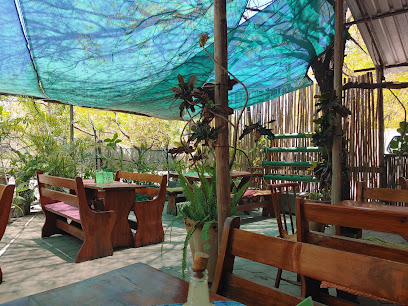
andBeyond Sandibe Okavango Safari Lodge
Experience luxury in nature at andBeyond Sandibe Okavango Safari Lodge – your gateway to Botswana's iconic wilderness.
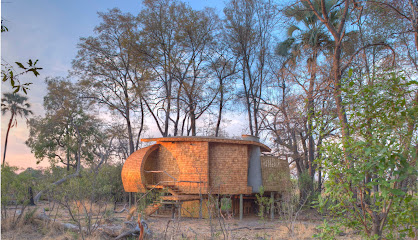
Sanctuary Chief's Camp
Discover unparalleled luxury at Sanctuary Chief's Camp in Botswana’s breathtaking Okavango Delta – where adventure meets tranquility.

Wilderness DumaTau
Experience luxury in nature at Wilderness DumaTau Lodge in Botswana's Linyanti region – where adventure meets tranquility.
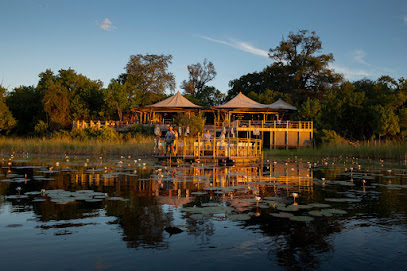
Sable Alley
Experience luxury and nature at Sable Alley Lodge in Khwai, Botswana – your gateway to unforgettable adventures in the wild.

Jao Camp
Experience luxury amidst nature at Jao Camp in Botswana's breathtaking Okavango Delta—where adventure meets serenity.

Little Mombo Camp
Experience ultimate luxury amidst Botswana's breathtaking wildlife at Little Mombo Camp in the Okavango Delta.
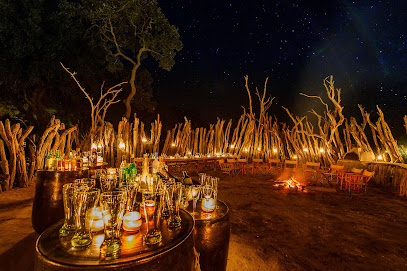
Markets, malls and hidden boutiques
Botswana Craft
Discover the artistry and culture of Botswana at Botswana Craft, where local crafts and culinary delights await every visitor.
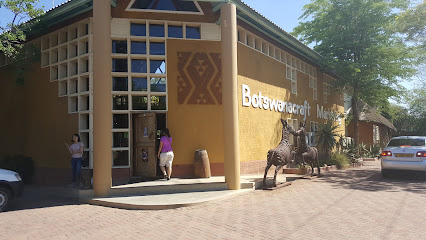
Chobe Marina Lodge
Experience the ultimate blend of luxury and adventure at Chobe Marina Lodge, your gateway to Botswana's breathtaking wildlife and natural beauty.

Moremi Game Reserve
Explore the breathtaking wilderness of Moremi Game Reserve, a premier destination for wildlife lovers seeking adventure in Botswana's stunning landscapes.
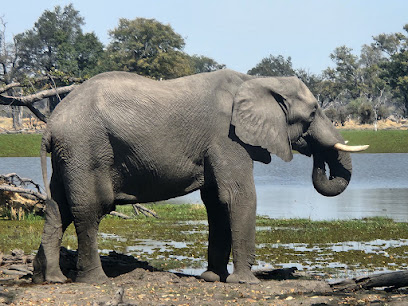
Cresta Maun Hotel
Discover tranquility and adventure at Cresta Maun Hotel, your gateway to the stunning landscapes of Botswana's Okavango Delta.

Audi Camp Safaris
Discover the wild heart of Botswana at Audi Camp Safaris, your gateway to unforgettable adventures in the Okavango Delta.

Savute Elephant Lodge, A Belmond Safari, Botswana
Discover the ultimate safari experience at Savute Elephant Lodge, where luxury meets the wild in Botswana's breathtaking Chobe National Park.

Eagle Island Lodge, A Belmond Safari, Botswana
Discover the magic of Botswana's Okavango Delta at Eagle Island Lodge, where luxury meets adventure in a breathtaking natural paradise.

andBeyond Nxabega Okavango Tented Camp
Experience luxury and adventure at andBeyond Nxabega Okavango Tented Camp, an oasis in the heart of Botswana's Okavango Delta.
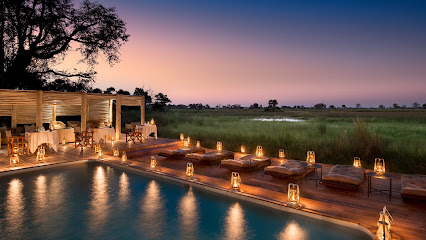
Pom Pom Camp
Discover the enchanting wildlife and luxurious tented accommodations of Pom Pom Camp in the heart of the Okavango Delta.
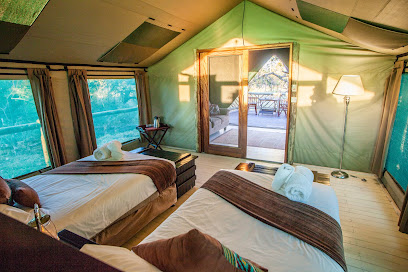
Engen
Discover the convenience and quality service at Engen gas station in Maun, your essential stop for fuel and travel essentials.
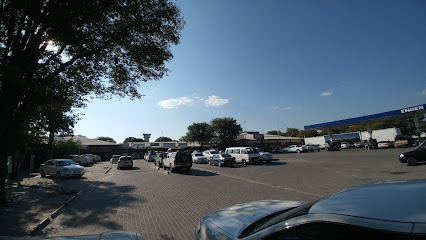
Gabane Pottery
Explore Gabane Pottery: A Cultural Haven for Handmade Ceramics and Local Artistry in Botswana.
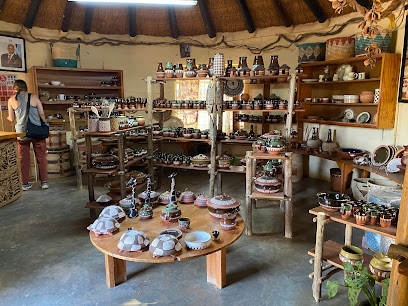
Semowi Nature Camp
Experience the tranquility of Semowi Nature Camp in Botswana, where nature meets comfort amidst stunning landscapes.
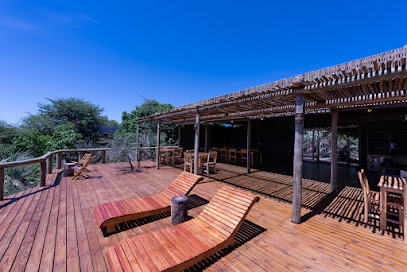
Okuti - Ker & Downey Botswana
Experience the enchanting beauty and wildlife of the Okavango Delta at Okuti - your luxurious lodge retreat in Botswana.
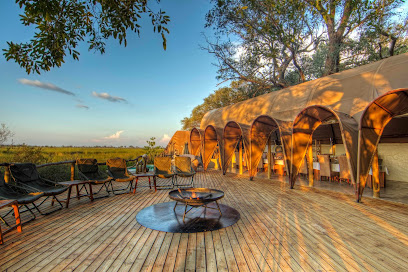
Oddballs Camp
Discover the serene beauty of Oddballs Camp, a unique lodge on the edge of Chief's Island in Botswana's enchanting Okavango Delta.

Wilderness Mombo
Discover the luxury of Wilderness Mombo in Botswana's Okavango Delta, where unforgettable wildlife experiences meet exquisite comfort.
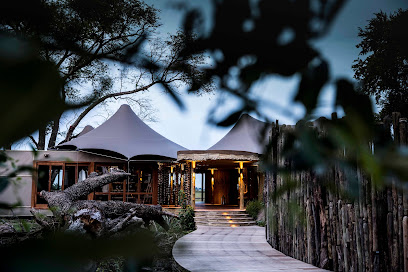
Essential bars & hidden hideouts
Bull & Bush
Discover delectable local and international cuisine at Bull & Bush, a vibrant restaurant in Gaborone offering an inviting atmosphere and delightful dishes.
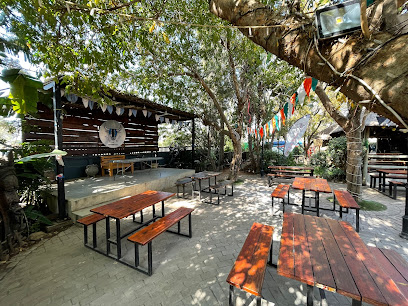
Moremi Game Reserve
Discover the breathtaking landscapes and diverse wildlife of Moremi Game Reserve, a must-visit national park in Botswana for nature enthusiasts and adventure seekers.
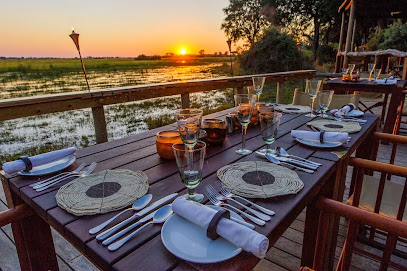
Audi Camp Safaris
Discover the beauty of Botswana at Audi Camp Safaris, where adventure meets comfort in a family-friendly environment.

Serowe Barcelos
Discover the vibrant flavors of Botswana and beyond at Serowe Barcelos, a must-visit restaurant in Serowe, perfect for all food lovers.
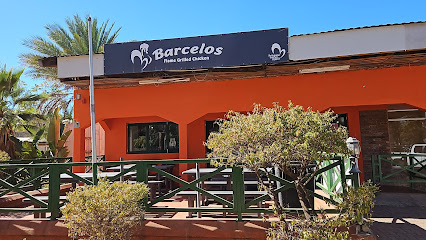
Khwai River Lodge, Botswana
Experience luxury and wildlife in harmony at Khwai River Lodge, Botswana's serene refuge in the breathtaking Okavango Delta.

Camp Moremi
Experience the adventure and beauty of Botswana's Okavango Delta at Camp Moremi, a family-friendly children's camp surrounded by nature's wonders.

Hilary's Restaurant
Experience the authentic flavors of Botswana at Hilary's Restaurant in Maun, a culinary haven for tourists and locals alike.
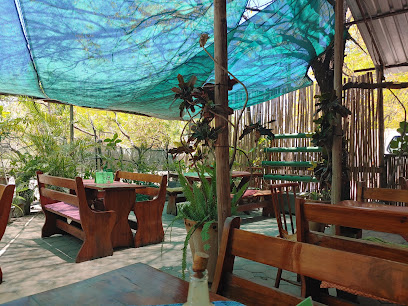
andBeyond Sandibe Okavango Safari Lodge
Discover the epitome of luxury in the heart of Botswana at andBeyond Sandibe Okavango Safari Lodge, where nature meets elegance.
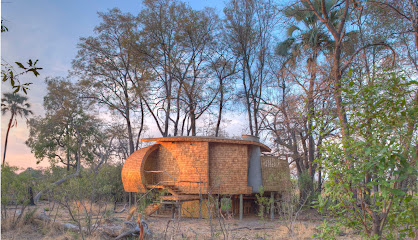
Eagle Island Lodge, A Belmond Safari, Botswana
Experience ultimate luxury at Eagle Island Lodge, where the beauty of the Okavango Delta meets thrilling wildlife adventures.

andBeyond Nxabega Okavango Tented Camp
Experience the unmatched beauty and wildlife of Botswana at andBeyond Nxabega Okavango Tented Camp in the stunning Okavango Delta.
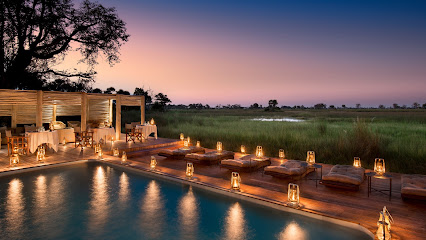
Xugana Island Lodge
Discover the breathtaking beauty and wildlife of Botswana at Xugana Island Lodge, your serene escape in the heart of the Okavango Delta.

Okuti - Ker & Downey Botswana
Discover the exquisite Okuti lodge, a luxurious retreat in the Okavango Delta, offering nature, wildlife, and unforgettable experiences amidst Botswana's stunning landscapes.
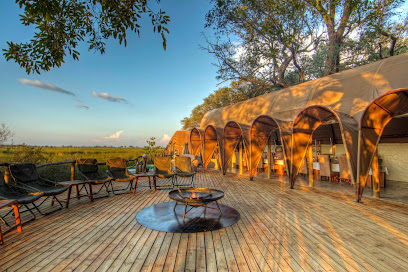
Morula Restaurant,
Discover the flavors of Botswana at Morula Restaurant in Gaborone, where local cuisine meets a welcoming atmosphere and exceptional service.
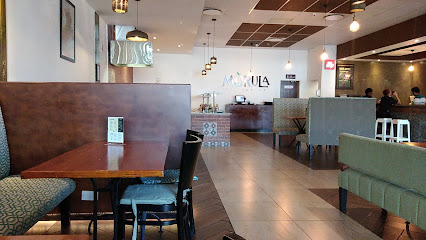
O Bona Moremi Safari Lodge
Discover nature's wonders at O Bona Moremi Safari Lodge, a luxurious escape in Botswana's breathtaking Khwai region.

Local Phrases about Moremi Game Reserve
-
- HelloDumela
[doo-meh-lah] - GoodbyeTsamae
[tsah-mah-eh] - YesEe
[ee] - NoNnyaa
[nyah] - Please/You're welcomePula
[poo-lah] - Thank youKe a leboga
[keh ah leh-boh-gah] - Excuse me/SorryKe kopa tshegetso
[keh koh-pah chay-get-so] - How are you?Le kae?
[leh kah-eh] - Fine. And you?Ke teng. Le wena?
[keh teng. leh weh-nah] - Do you speak English?O bua se setswana?
[oh boo-ah seh set-swah-nah] - I don't understandGa ke itse
[gah keh eet-seh]
- HelloDumela
-
- I'd like to see the menu, pleaseKe kopa go bona sebaka, le kamoso
[keh koh-pah goh boh-nah seh-bah-kah, leh kah-moh-soh] - I don't eat meatGa ke itse nyama
[gah keh eet-seh nyah-mah] - Cheers!Pholo e ntle!
[poh-loh eh uhn-tleh] - I would like to pay, pleaseKe kopa go dira thoko, le kamoso
[keh koh-pah goh dee-rah toh-koh, leh kah-moh-soh]
- I'd like to see the menu, pleaseKe kopa go bona sebaka, le kamoso
-
- Help!Boitumelo!
[boy-too-meh-loh] - Go away!Ika!
[ee-kah] - Call the Police!Bontsha Porofeti!
[boh-ntshah poroh-feh-tee] - Call a doctor!Bontsha Morwa!
[boh-ntshah moh-ruh] - I'm lostKe a thusa
[keh ah too-sah] - I'm illKe kgotsofala
[keh koh-tsoh-fah-lah]
- Help!Boitumelo!
-
- I'd like to buy...Ke kopa go rekela...
[keh koh-pah goh reh-keh-lah] - I'm just lookingKe bone ka go bona fela
[keh boh-neh kah goh boh-nah feh-lah] - How much is it?E bokae?
[eh boh-kah-eh] - That's too expensiveSe ke tlhokahalang
[seh keh tlhoh-kah-hah-lang] - Can you lower the price?O ka ikarabela setlhako?
[oh kah ee-kah-rah-beh-lah set-lah-koh]
- I'd like to buy...Ke kopa go rekela...
-
- What time is it?Ke nako mang?
[keh nah-koh mah-ng] - It's one o'clockKe nako ya mo
[keh nah-koh yah moh] - Half past (10)Nako ya lelemele
[nah-koh yah leh-leh-meh-leh] - MorningBogale
[boh-gah-leh] - AfternoonDipuo
[dee-pwoh] - EveningBontsi
[boh-nt-see] - YesterdayGaele
[gah-eh-leh] - TodayNamane
[nah-mah-neh] - TomorrowNgwaga
[ngwah-gah] - 1Nngwe
[nng-weh] - 2Pedidi
[peh-dee-dee] - 3Tharo
[tah-roh] - 4Nne
[nn-neh] - 5Tlhano
[tlhah-noh] - 6Tlhabelo
[tlhah-beh-loh] - 7Supa
[soo-pah] - 8Roborobo
[roh-boh-roh-boh] - 9Nkwe
[ng-kweh] - 10Lesome
[leh-soh-meh]
- What time is it?Ke nako mang?
-
- Where's a/the...?Kae...?
[kah-eh] - What's the address?Ke kae le aterese?
[keh kah-eh leh ah-teh-reh-seh] - Can you show me (on the map)?O ka nka sebele (ka maping)?
[oh kah ng-kah seh-beh-leh (kah mah-peeng)] - When's the next (bus)?Ke nako efe eo (basi) e le teng?
[keh nah-koh eh-feh eh-oh (bah-see) eh leh t-eh-ng] - A ticket (to ....)Litshepe (mo ....)
[li-tsheh-peh moh]
- Where's a/the...?Kae...?
History of Moremi Game Reserve
-
The Moremi Game Reserve was officially established in 1963 by the Batawana tribe. Recognizing the need to protect the area's diverse wildlife and ecosystems, the tribe set aside a portion of their ancestral lands for conservation purposes. This proactive measure was one of the earliest instances of a community-driven conservation initiative in Africa.
-
The reserve is named after Chief Moremi III of the Batawana tribe, who played a pivotal role in its creation. His leadership and vision were instrumental in convincing the local community of the importance of conservation, which led to the establishment of the reserve. The Batawana continue to play a significant role in the management and protection of the area.
-
Since its establishment, Moremi Game Reserve has been a sanctuary for numerous species, some of which were on the brink of extinction. The reserve is home to the Big Five, including the critically endangered African wild dog. Conservation efforts have included anti-poaching patrols, habitat restoration, and scientific research, contributing to the resurgence of many species.
-
Scattered throughout Moremi Game Reserve are several cultural heritage sites that offer glimpses into the lives of the indigenous people who have inhabited the area for centuries. These sites include ancient rock paintings and traditional village structures, providing valuable insights into the history and culture of the region's original inhabitants.
-
Moremi Game Reserve has become a model for ecotourism in Africa. The reserve's management has focused on sustainable tourism practices that benefit both the environment and the local communities. This includes the development of eco-friendly lodges, guided tours that educate visitors about conservation, and community-based tourism initiatives that provide economic opportunities for local people.
-
Moremi Game Reserve is a crucial part of the Okavango Delta, one of the world's largest inland deltas and a UNESCO World Heritage Site. The delta's seasonal flooding patterns create a unique and dynamic ecosystem that supports a wide variety of wildlife. The integration of Moremi into the delta's conservation framework has enhanced efforts to protect this vital ecological area.
-
Despite its successes, Moremi Game Reserve faces ongoing challenges, including climate change, human-wildlife conflict, and the pressures of increasing tourism. Ongoing efforts to address these issues include adaptive management strategies, community engagement, and international cooperation. The reserve's future prospects depend on the continued commitment to conservation and sustainable development.
Moremi Game Reserve Essentials
-
Moremi Game Reserve is located in northern Botswana within the Okavango Delta. The nearest international airport is Maun International Airport (MUB), approximately 100 kilometers away. From Maun, you can take a charter flight directly into the reserve or travel by road, which typically takes around 4-5 hours depending on road conditions. Charter flights are the quickest and most convenient option, offering breathtaking aerial views of the delta.
-
Within Moremi Game Reserve, transportation options include guided safari vehicles and self-drive 4x4 vehicles. It is highly recommended to use a guided safari service as they have extensive knowledge of the terrain and wildlife. If you opt for self-driving, ensure your vehicle is well-equipped for off-road conditions. Note that there are no public transportation options within the reserve.
-
The official currency in Botswana is the Botswana Pula (BWP). Most lodges and camps within Moremi Game Reserve accept credit cards, but it is advisable to carry some cash for tips and smaller transactions. ATMs are available in Maun, so it’s a good idea to withdraw cash before heading into the reserve as there are no banking facilities within Moremi.
-
Moremi Game Reserve is generally safe for tourists, but it is crucial to follow guidelines provided by your guide or lodge. Wildlife encounters can be dangerous; always stay in your vehicle unless in a designated safe area. There are no specific high-crime areas targeting tourists within the reserve, but standard precautions such as not leaving valuables unattended should be observed.
-
In case of emergency, contact your lodge or guide immediately, as they have the means to communicate with emergency services. For medical emergencies, Maun has the nearest medical facilities. It is advisable to have comprehensive travel insurance that includes medical evacuation. Most lodges are equipped with basic first aid kits and have protocols in place for emergency situations.
-
Fashion: Do wear neutral-colored, lightweight clothing suitable for safari. Avoid bright colors that can attract wildlife. Religion: Botswana is predominantly Christian, but the reserve itself is secular. Respect for local customs is appreciated. Public Transport: There is no public transport within the reserve. Use guided tours or self-drive options. Greetings: Do greet locals and guides with a friendly 'hello' or 'dumela' in Setswana. Eating & Drinking: Do try local cuisine offered at lodges. Always drink bottled water to avoid waterborne illnesses.
-
To experience Moremi Game Reserve like a local, consider going on a walking safari or a mokoro (dugout canoe) excursion to get up close with the delta's unique environment. Engage with your guides and ask questions; their knowledge about the flora and fauna will greatly enhance your experience. Early morning and late afternoon game drives are the best times to see wildlife as animals are more active during these periods.
Trending Landmarks in Moremi Game Reserve
-
Mokolodi Nature Reserve
-
Cresta Mowana Safari Resort and Spa
-
Khama Rhino Sanctuary
-
Tsholofelo Park
-
Chobe National Park
-
Goo-Moremi Gorge Resort
-
Makgadikgadi Pans National Park
-
Central Kalahari Game Reserve
-
Helicopter Horizons
-
Audi Camp Safaris
-
Nxai Pan National Park
-
Khwai River Lodge, Botswana
-
Baines Baobabs
-
Third Bridge Camp
-
Camp Moremi
Nearby Cities to Moremi Game Reserve
-
Things To Do in Katima Mulilo
-
Things To Do in Kasane
-
Things To Do in Victoria Falls
-
Things To Do in Livingstone
-
Things To Do in Hwange
-
Things To Do in Rundu
-
Things To Do in Francistown
-
Things To Do in Serowe
-
Things To Do in Palapye
-
Things To Do in Selebi-Phikwe
-
Things To Do in Mahalapye
-
Things To Do in Tsumeb
-
Things To Do in Molepolole
-
Things To Do in Gaborone
-
Things To Do in Kariba








